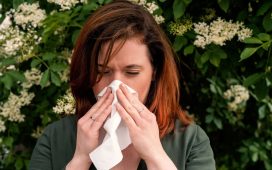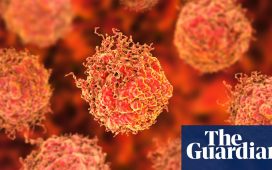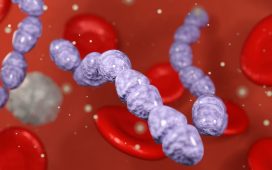A MAP has revealed how tap water in ten UK regions is riddled with POO – with experts fuming it “should simply never happen”.
Hundreds are feared ill after tap water in South Devon was found to be contaminated with a parasite causing diarrhoea and “childbirth-like” cramps.
The UK Health Security Agency is investigating 46 confirmed cases linked to the cryptosporidium outbreak.
But experts fear people could fall ill in other parts of the UK.
A map has revealed how over 44.5 million Brits were supplied water by a company that experienced at least one bacteria breach in 2022.
A total of 34 E. coli and Enterococci breaches took place in England and Wales in 2022, according to the Government’s Drinking Water Inspectorate (DWI).
Read More on cryptosporidium
Both are types of bacteria that indicate water has been contaminated by faeces, which can make humans and animals very sick.
The data – which stems from faecal bacteria detected in taps – shows 12 breaches were recorded in the North West in the area served by Severn Trent Water.
Next was Anglian Water in the East of England which recorded six breaches, while Northumbrian, Essex and Suffolk Water had four.
Experts say contamination events like this “should simply never happen”.
There is no geographic data for cryptosporidium outbreaks in UK water and those infected with the bug – which causes cryptosporidiosis – could be ill for a up to a month, an expert previously warned.
Cryptosporidium can live in the intestines and faeces of infected humans and animals.
It can spread directly from another person or animal by touching faeces or through swimming in or consuming contaminated water or food.
Infected people experience symptoms such as diarrhoea, “childbirth-like” cramps, nausea or vomiting, a mild fever, and loss of appetite.
Professor Paul Hunter, an infectious diseases expert at the University of East Anglia, warned further outbreaks of the bug could occur in other parts of the UK.
He told MailOnline this would not necessarily stem from drinking water supplies directly, but from people who may have become infected in Devon.
He stressed that Brits would not need to boil water like those in South Devon but could be at risk of coming into contact with someone who has carried the illness out of the region.
He also warned the country could see future outbreaks as the UK’s ageing water infrastructure breaks down.
How to tell if you’ve picked up cryptosporidium – plus, steps to avoid it
HUNDREDS of people in Devon have been struck down by a parasite that infiltrated the water supply.
The bug, cryptosporidium, commonly known as ‘crypto,’ can infect the digestive systems of both animals and people.
Most people recover, but some can become seriously ill, such as very young children and those with particularly weak immune systems.
What are the symptoms?
- Profuse watery diarrhoea
- Stomach pains
- Nausea
- Vomiting
- Low-grade fever
- Loss of appetite
- Dehydration
- Weight loss
Symptoms usually last about two weeks but can be longer, especially in people with weak immune systems.
During the illness, you might think you are getting better and have shaken off the infection, but then it returns a couple of days later before you fully recover.
Take the following steps to protect yourself from the illness
The advice to people living in the affected area is to boil your drinking water and drink plenty to prevent becoming dehydrated – and stay away at home until it’s subsided.
Beyond the current outbreak, crypto can also be caught in lakes and swimming pools and contact with animal manure.
Therefore, you should always avoid swallowing water in lakes and swimming pools.
Catching it from animals is usually the most common way people become unwell, with a spike coming in spring when farms hold open days.
You should always wash your hands thoroughly with soap and warm water after working with, feeding, grooming or playing with pets and other animals.
How do I treat the illness?
There is no specific treatment for cryptosporidiosis.
Most people with a healthy immune system will recover within one month.
It’s important to drink plenty of fluids as diarrhoea or vomiting can lead to dehydration and you can lose important sugars and minerals from your body.
Cryptosporidiosis is highly infectious, so you need to be very clean around your home for at least 48 hours after your symptoms stop, so don’t return to work or school until that time has passed, don’t share towels or bedding and don’t prepare food for others.
You are infectious to other people while you are ill and have symptom
On Wednesday, South West Water urged locals across Brixham, Boohay, Kingswear, Roseland and North East Paignton to boil their tap water.
The water company has apologised for the outbreak as it is feared the dirty water fallout could see half-term ruined and trigger an exodus of tourists.
The possible source of the bug has been identified as a “damaged air valve” in the Hilldean area of Brixham.
Local MP Anthony Magnall said this “may have allowed animal waste or contaminated groundwater to enter the local supply”.
‘TUBES STICKING OUT HER ARMS’
Brixham resident Lisa Horswill, who was struck down by the waterborne parasite, told iNews: “It’s worst after you’ve just eaten.
“Then the diarrhoea just empties you out and the stomach cramps kick in, which are so painful, like childbirth.”
Gran Elaine Hollier, 80, was hospitalised after suffering severe dehydration and vomiting for two weeks.
Dennis, Elaine’s husband of 60 years, said: “She was absolutely diabolical.
“It has been so upsetting to see my wife in a hospital bed with tubes sticking out of her arms for antibiotics.
“She’s got no appetite and no energy. I was dead worried for myself too because they didn’t have a clue.”
Mr Hollier says he suffered symptoms but had a “lucky escape” as he drinks less water than his wife.
They both initially thought an under-cooked sausage had made them ill.
The cryptosporidium outbreak saw water bottle pick-up points set up in Brixham and Paignton for locals to get hold of clean drinking water.
In a statement, South West Water announced they would increase their compensation package to locals to £115 “to say sorry for the stress and worry the situation has caused”.
South West Water previously offered just £15 to customers whose water was infected with cryptospordium.
Laura Flowerdew, the firm’s chief customer and digital officer, said “we sincerely apologise for the impact this is having”.
South West Water statement
South West Water say it is ‘sorry’ for the cryptosporidium outbreak in South Devon.
In a statement, Laura Flowerdew, the firm’s Chief Customer and Digital Officer, said: ‘We sincerely apologise for the impact this is having on our customers in the Brixham and Alston areas.
‘Protecting the health of our customers and providing them with a clean, fresh drinking water supply is our number one priority and we will continue to work around the clock to make sure that happens as soon as possible.’
Take steps to protect you and your family
By Lizzie Parry, Head of Health
ANYONE who’s had a bout of norovirus will know how miserable a tummy bug can be.
In this case, the cause appears to be the Cryptosporidium parasite, a tiny organism that causes an illness known as cryptosporidiosis.
The bug can be found in the intestines and poo of infected humans and animals.
Anyone can fall sick but it’s most common in kids aged between one and five.
Other people at high risk include people who work with animals, people exposed to human faeces (parents changing nappies), and people who swim in open water.
That’s because you catch the bug from an infected person or animal by coming into contact with their faeces.
Other sources of infection include drinking or swimming in contaminated water, eating contaminated fresh food (unwashed or unpeeled veg or salads) and drinking contaminated raw milk.
Like norovirus, the symptoms can be really unpleasant, watery diarrhoea, stomach pains, nausea or vomiting, fever and a loss of appetite, which can lead to dehydration.
Symptoms tend to last for about two weeks but can ease off and reappear in that time.
The only way to know for sure if you’ve been infected – and to tell it from other tummy bugs – is to ask the doctor to test a stool sample.
Like other infectious bugs, there are things you can do to protect yourself and your family.
First and foremost, wash your hands thoroughly with warm soap and water before handling any food, after preparing raw food, after going to the loo or changing a baby’s nappy and after playing with, or looking after any animals – including your pets.
And if you, or a member of your family, catches the bug make sure you wash all dirty bedding and towels, avoid sharing towels, clean all bathrooms and avoid preparing food for others until you’ve been symptom-free for at least 48 hours.
It goes without saying that if you have symptoms avoid going into work or taking your children to school until you’ve been symptom-free for 48 hours too.
There’s no specific treatment, but most healthy people will recover within a month. The NHS notes it is important to drink lots of fluids to avoid dehydration.
If you are worried about your child, or you can’t seem to shrug off the bug it’s worth speaking to your GP – try filling out an online consultation form.



















